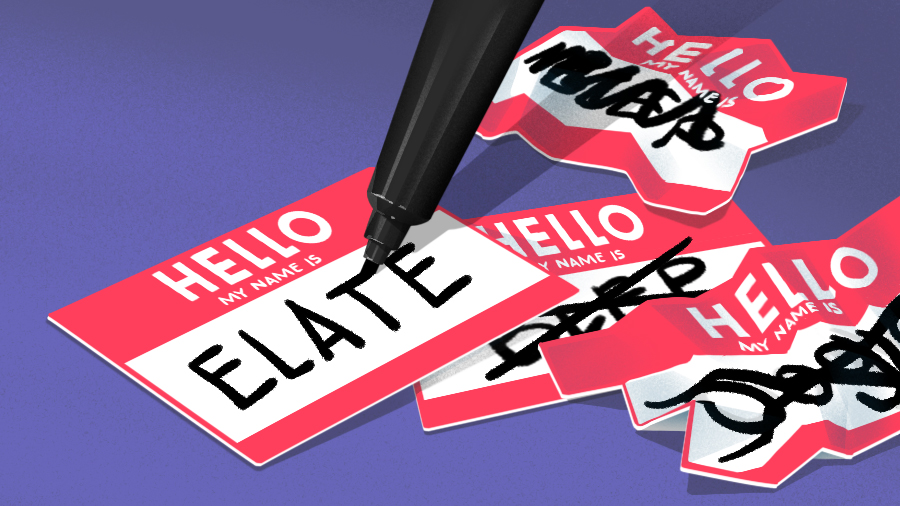Winners of spelling bees take note: Now is not the time to start a career in startup naming.
Creatively misspelled words, long popular for startup names, continue to rank among the top choices for nascent companies. Other top naming trends include short brands, “ly” suffixes, puns and human first names, according Crunchbase’s latest deep-dive into startup brands.
“A lot of what’s driving things is people saying: “I really want to name it that but the domain is taken,” said Athol Foden, president of Brighter Naming, a corporate naming consultancy. Founders who can’t get their top pick commonly settle for something that sounds similar, perhaps with a different spelling or an added suffix.
For our latest Crunchbase News naming analysis, the methodology involved looking at all the startups in English-speaking countries that raised a seed round of $500,000 or more in the past 13 months
Search less. Close more.
Grow your revenue with all-in-one prospecting solutions powered by the leader in private-company data.
The goal, after poring through more than 4,000 names, was to piece together leading trends in startup naming. Beyond that, the hope is to shed a light on the prevailing mindset around how to create a memorable brand in a world overrun with companies old and new furiously competing for our attention.
Below, we take a closer look at some of the top trends
Trend No. 1: Creative misspellings
Why start a name with a “C” when you could use a “K?” Why not substitute a “y” for an “i?”
And why not remove a vowel here and there to make a name pop?
Those are some of the preferred tactics among seed-funded startups when selecting a name. Our analysis unearthed dozens of creatively misspelled monikers among companies funded since last year, a sampling of which we’ve aggregated in a list:
Misspellings have become so popular that there are often multiple companies with the same spell check-triggering names. The Crunchbase dataset includes several companies named “Swapp,” “Shyft” and “Flyp,” for instance, not just those that raised seed funding in recent quarters.
Much of the enthusiasm for misspellings, Foden observes, comes from companies seeking to reach their audiences via their mobile phones. “There’s only so much real estate you can see on a small phone,” he said, so leaving out vowels may actually help a bit.
It helps that many companies with misspelled words as monikers—including Tumblr, Grindr, and Cazoo—have turned into recognized brands.
Search less. Close more.
Grow your revenue with all-in-one prospecting solutions powered by the leader in private-company data.
Trend No. 2: Word combos and puns
No one says your startup has to have a one-word name. It could be multiple words, or two words squashed together into one.
When names get longer, they often get more playful as well. Our name survey found several examples of companies picking catchy word combos that also illustrate what they do. We put together a list of several below:
Standouts include TeamOut, a platform for organizing team offsites; Starchive, a place where creators can archive their works; and Leasecake, a provider of tools to make managing leases easier.
The advantage to a multiword name is that there are a lot more options to choose from, said Foden, noting that many of his favorite company monikers are plays on words. One of his top picks isn’t a venture-backed startup but rather a travel company that goes by the name Please Go Away.
Suffixes, especially ‘ly’
Oftentimes, the only way to get a startup name that isn’t already taken is to add some sort of suffix to it.
Frequently, this alone is not enough. Names with ly and “ify” suffixes have been prevalent for a number of years, giving rise to well-known names including Shopify and Bitly. That means many of the most obvious versions—think Cloudify or Netify—are already taken, Foden notes.
Still the popularity of ly suffixes in particular continues. We’ve aggregated a sample list of recently seed-funded companies below:
Trend No. 4: First Names
Looking at lists of the most popular baby names, it’s obvious parents share similar opinions about what makes for a suitable moniker. Ditto for startup founders who choose a human first name for their ventures.
In recent quarters, we’ve seen a host of first-name startups get funded, including Mona, Blair, Lilli, Marvin, Bennie, Otto, Emmi and Billy; and the list goes on. In almost all of these cases, however, there were multiple startups in the Crunchbase dataset sharing the same name.
Numbers, condiments and more
There are several other mini-trends in startup naming.
One is the use of a number at the beginning of a name. Crunchbase found several dozen of these in our latest survey, from 10club to 401GO.
Food names for non-food companies also remain popular. It is a strategy that worked for Apple, so who’s to criticize? Examples among recently funded companies include Waffle Labs, Marmalade, Mustard, Wasabi and Cake.
Animal names are another perennial fave. Recently funded examples include Ferret, Ox, Hedgehog Markets, Caribou, and at least two companies with Sparrow in their name.
At the end of the day, it’s often tough to say whether a name is really terrible or really great. One that I find particularly confusing is a U.K.-based crypto trading and NFT platform called CoinBurp. Part of me thinks it’s a really awful name. But, after reading over 4,000 startup names, I still can’t get that one out of my head. So perhaps they’re on to something.
Illustration: Dom Guzman

Stay up to date with recent funding rounds, acquisitions, and more with the Crunchbase Daily.



![Illustration of a guy watering plants with a blocked hose - Global [Dom Guzman]](https://news.crunchbase.com/wp-content/uploads/quarterly-global-3-300x168.jpg)
67.1K Followers